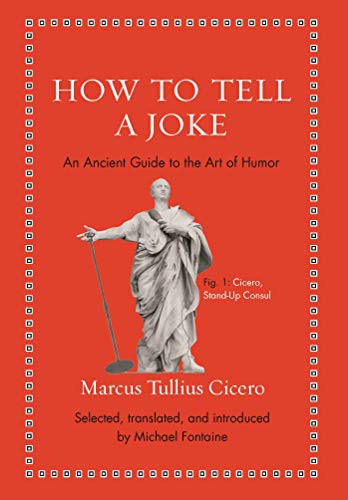Jullan reviewed How to Tell a Joke by Cicero (Ancient Wisdom for Modern Readers, #16)
A good translation and many good jokes and quips
4 stars
I liked this one. It includes translations of segments from Cicero's work "On the Ideal Orator" and Quintilian's "The Education of the Orator". The overall theme is the question of whether humor be taught or is it a skill one is born with. Both texts strive at great lengths to categorize jokes and helpfully provide examples with them.
An excellent quality of this work, as if often the case with Cicero's works, is the sheer amount of examples provided. There is an unfortunate overlap of themes and jokes in between Cicero's and Quintilian's texts, where the latter often references the former. But I feel like Quintilian goes more in depth into the discussion of the topics than Cicero, even if Cicero does have a good structure in his text.
In regards to the translation Michael Fontaine, the translator/annotator, put it best: "Styles of translation vary. Some are literal, others go …
I liked this one. It includes translations of segments from Cicero's work "On the Ideal Orator" and Quintilian's "The Education of the Orator". The overall theme is the question of whether humor be taught or is it a skill one is born with. Both texts strive at great lengths to categorize jokes and helpfully provide examples with them.
An excellent quality of this work, as if often the case with Cicero's works, is the sheer amount of examples provided. There is an unfortunate overlap of themes and jokes in between Cicero's and Quintilian's texts, where the latter often references the former. But I feel like Quintilian goes more in depth into the discussion of the topics than Cicero, even if Cicero does have a good structure in his text.
In regards to the translation Michael Fontaine, the translator/annotator, put it best: "Styles of translation vary. Some are literal, others go for the gist. This one goes for the jest." And he did a good job, even if some jokes often do tend to fall short due to the subtle linguistic properties lost in the translation.

